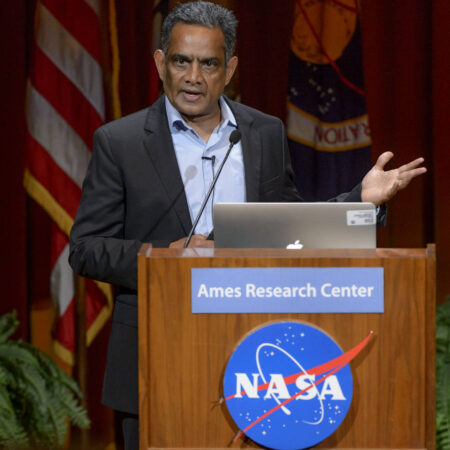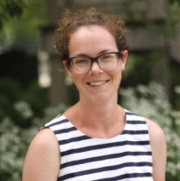Refine
Date Range Clear
Recorded by Clear
Keywords Clear
Partnerships Clear
- No matching terms.
Organizations Clear
Places Clear
Languages Clear
Initiatives Clear
- No matching terms.
Dr. Ella Sciamma-O’Brien is a research scientist in laboratory astrophysics and planetary science. As a member of the Astrophysics and Astrochemistry Laboratory at NASA Ames Research Center, Dr. Sciamma-O’Brien has been working on the Titan Haze Simulation (THS) experiment, developed on the...
Stephanie Marie Ortiz Rosario is an undergraduate student and Physics major from the University of Puerto Rico-Mayagüez. Over the summer, Stephanie will be participating at SaSa, the Student Airborne Science Activation, summer program. SaSa is hosting 25 early-career undergraduates (first-...
Dr. Naseem Rangwala is an astrophysicist and project scientist for the SOFIA mission. SOFIA, or the Stratospheric Observatory for Infrared Astronomy, is a modified Boeing 747 airplane carrying a large telescope. SOFIA observes the universe through long infrared wavelengths. As...
Kennedi White is one of 25 students starting in the new Student Airborne Science Activation (SaSa) program at the NASA Ames Research Center. Students at SaSa are undergraduates from minority-serving institutions, competitively selected across the United States. Over the course...
In this interview, Senior Engineer Alok Shrestha discusses his career path as both engineer and scientist, now working for the Airborne Science Facility at NASA Ames. He also discussed how his background helped aid the 2015 earthquake recovery in Nepal,...
Dr. Dan Whitt studies currents and the circulation of nutrients in ocean ecosystems. Dan describes his Ph.D. research on internal waves ‒ oscillations found where the ocean is stratified by density ‒ and compares this effect to an expertly-poured Arnold...
Dr. Charles Gatebe's research focus is on clouds aerosols, ecosystem structure and function, albedo, and feedbacks to climate. In this interview, we chat about his science journey pursuing science, starting with his interest in studying Kenya’s air pollution, and how...
NASA Atmospheric Scientist Dr. Caroline Dang analyzes particles in the atmosphere and compares them with particles collected from flight observations to better understand aerosols in Earth's atmosphere and how they interact with clouds and radiation.
In this interview, Dr. Meloe S. Kacenelenbogen discusses her expertise in ‘aerosols,’ suspended particles in the atmosphere. These small particulates can affect air quality and human health and can also impact the Earth’s radiation balance. We also discuss why she...
David Moore is a first-year graduate student at UCLA. He is studying tropical cyclones, also known as typhoons or hurricanes, on Earth. In his graduate research work, David is researching how to bridge the gap between planetary atmospheres and meteorology...
Dr. Matthew Johnson's research is in atmospheric chemistry, a branch of atmospheric science, which looks at the composition and chemistry of Earth's atmosphere, such as aerosols and trace gas emissions, and how particles may impact human health. Dr. Johnson's research...
Dr. Rama Nemani, Senior Earth Scientist at the NASA Ames Research Center, works on ecological forecasting. In this interview, we discuss how Rama’s career trajectory moved from farming to supercomputing, NASA Earth Exchange (NEX), the difference between simulation modeling and...
Alicia Hoffman is a graduate student at the University of Wisconsin - Madison. She is studying air quality and how to model the chemistry that impacts our air, using the Community Multi-scale Air Quality Model — developed by the Environmental...
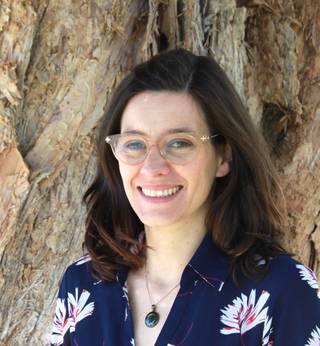
!["When I was a child I always loved nature -- I [knew] I wanted to become a scientist." A conversation with Stephanie Marie Ortiz Rosario.](https://archive.storycorps.org/uploads/2022/06/62abe55c5223e__ortizrosario_stephaniemarie_professionalpicture_-_stephanie_m_ortiz-rosario-450x450.jpg)
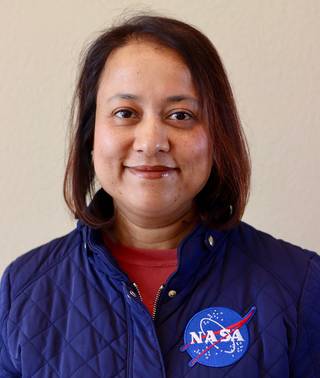
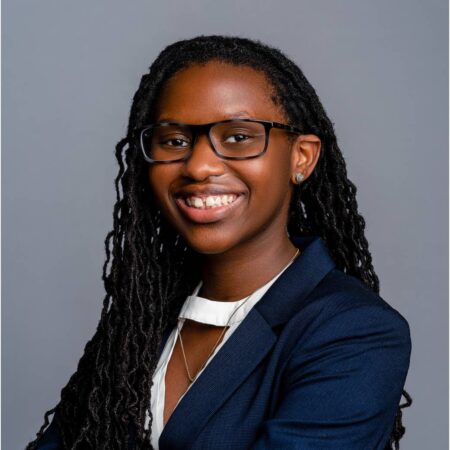
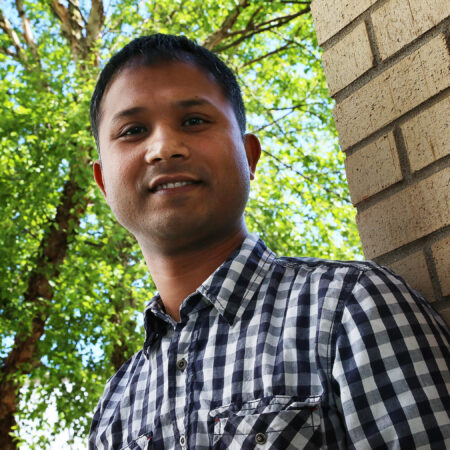
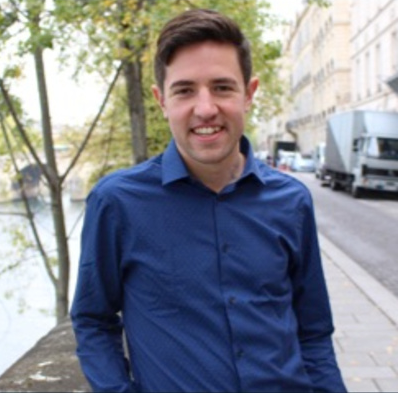
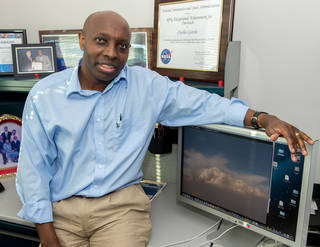
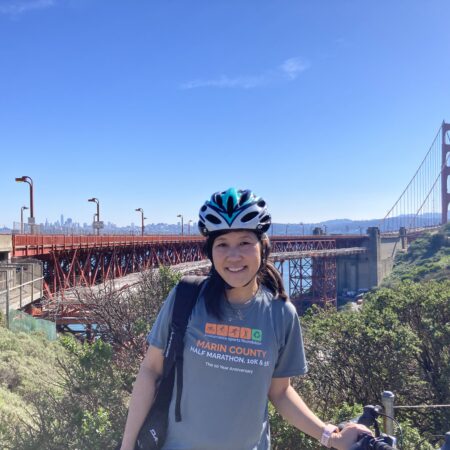
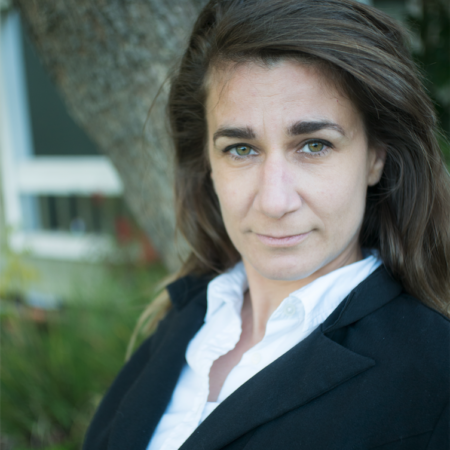
![“How far you go [in your science career] depends on how big your curiosity is." A conversation with David Moore.](https://archive.storycorps.org/uploads/2022/06/62a95661e5c99__david-moore-450x450.jpeg)
!["If you really enjoy it [science], all the work will be worth it." An interview with Matthew Johnson.](https://archive.storycorps.org/uploads/2021/02/6038002972612__M.Johnson_ceremony_pic_2020.11.11_submit_PROFILE-450x450.jpg)
